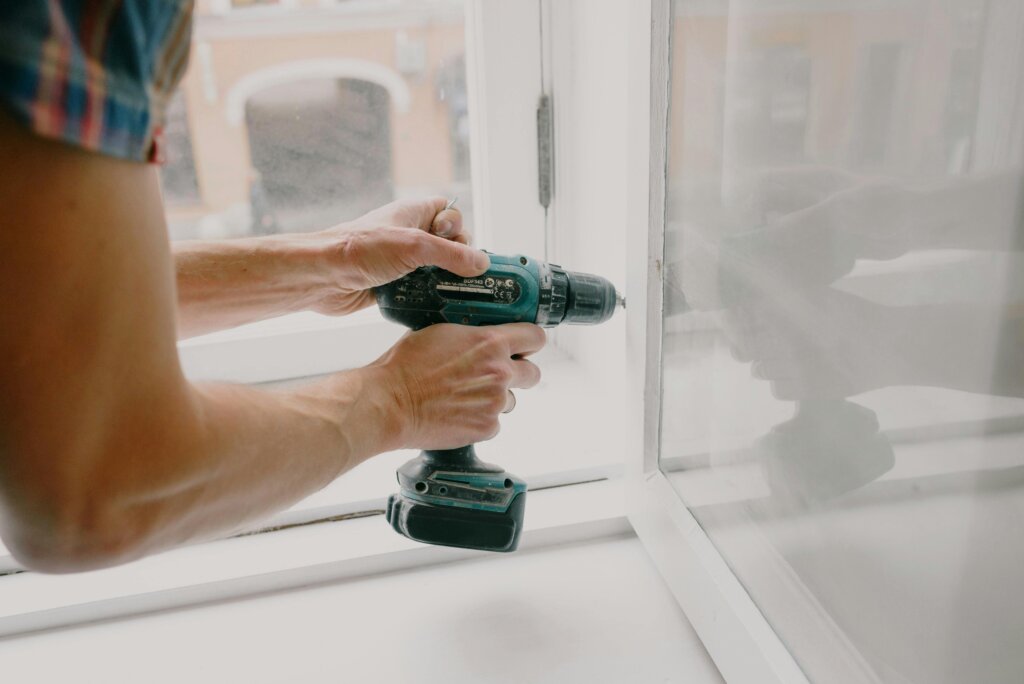Selling a house with code violations in Texas presents a unique set of challenges. Building code violations, ranging from minor infractions to significant structural issues, complicate the selling process due to the local government’s strict compliance requirements and potential penalties.
Understanding these complexities is crucial for homeowners looking to navigate this process successfully.
Code violations occur when a property does not meet the standards set by local regulations, which cover everything from structural integrity to electrical systems and plumbing. In Texas, these regulations are enforced at the city or county level, meaning the specific requirements and penalties can vary widely depending on the location.
Non-compliance can lead to fines, mandatory repairs, and even legal action, which can deter potential buyers and affect the property’s market value. For sellers, it’s essential to recognize the impact of these violations and take proactive steps to address them.
When exploring code violations in Texas, we aim to provide tips on practical strategies and ways to steer clear of typical code issues. This will empower you with the information you need to improve your home-selling experience and reach your goals.
Whether you’re collaborating with a real estate agent or tackling the problem DIY style, this guide will answer all your code violation questions.
Selling a House with Code Violations

Selling a house with code issues poses serious obstacles for homeowners in the real estate market. These violations can include things like outdated electrical systems or major structural issues that affect the property’s safety and stability. They can also greatly influence how appealing your property is to buyers, which complicates the selling process.
- Buyers are often wary of properties with known code issues, fearing the unknown costs and time required to bring the house up to code. This hesitation can reduce the number of interested buyers, making it harder to sell the property at a desirable price.
- Mortgage lenders are reluctant to finance homes with common violations, further shrinking the pool of potential buyers. Those who might be interested in purchasing such properties are often cash buyers or investors looking for a bargain, which can limit the seller’s ability to negotiate favorable terms.
- Certain code violations can also negatively affect the market value of a home. Buyers often demand significant price reductions to account for the cost of mandatory repairs, which can lead to a lower selling price.
Mandatory Disclosure in Texas
In Texas, sellers are legally required to disclose code violations to potential buyers. This requirement is part of the Seller’s Disclosure Notice, a document that provides detailed information about a property’s existing code violations.
- Legal Requirements
The Texas Property Code mandates that sellers must inform prospective buyers of known defects. Failure to disclose code violations can result in legal consequences, including lawsuits from buyers who later discover undisclosed issues.
- Impact on Buyer Interest
Mandatory disclosure can deter some buyers, especially those looking for move-in-ready homes. Knowing about these code violations and required repairs can make a property less attractive to a buyer, leading to prolonged listing periods.
- Transparency Benefits
Despite potentially deterring some buyers, transparency can also build trust with serious buyers. Being upfront about a property’s condition can attract investors and buyers who are prepared to handle repairs, leading to more realistic offers and smoother transactions.
Potential Delays
Selling a house with building-code violations can lead to delays for several reasons.
- Repair Needs
Identifying and rectifying code violations can be time-consuming. Depending on the severity of the issues, repairs may take weeks or even months to complete, delaying the closing of the sale.
- Inspections
Additional home inspection is often required to assess the extent of the violations and verify repairs have been completed. Scheduling and completing these inspections can add further delays to the process.
- Legal Paperwork
Addressing code violations often requires filing significant legal paperwork, such as permits and compliance documents. Ensuring all necessary paperwork is in place can slow down a sale, especially if the violations are complex.
Financial Implications
Selling a house with code violations has notable financial implications, both in terms of immediate costs and potential long-term expenses.
- Repair Costs
Bringing a property up to code can be expensive. Depending on the nature and extent of the violations, repair costs can range from a few hundred to several thousand dollars.
- Potential Fines
Non-compliance with local codes can result in costly fines from municipal authorities. These fines can accumulate over time, adding to the financial burden on the seller.
- Impact on Sale Price
Code violations usually require home price reductions to attract buyers willing to take on repair responsibilities.
Can You Sell a House with Code Violations?

Selling a house with code violations in Texas is possible, but it requires a careful approach. Understanding the process and what it requires can help you make an informed decision based on your circumstances.
Selling ‘As Is’
One option is to sell your property in its current state without making any repairs, commonly known as selling “as is.”
- Impact on Market Value
Selling a home “as is” typically means accepting a lower price. Potential buyers will factor in the cost of repairs and the risks associated with the violations, and their offers will reflect this.
- Buyer Pool
An “as is” sale can also limit your buyer pool primarily to investors and cash buyers willing to take on the safety issues themselves. These buyers often look for properties they can purchase at a reduced price and renovate for profit.
The primary advantage of selling “as is” is the speed and simplicity of the transaction. It allows you to avoid the time and expense of making repairs, which can be significant if the violations are extensive.
Making Repairs Before Selling
If selling “as is” doesn’t feel like the right approach for you, you may decide to address the code violations before selling your house.
- Increased Market Value
Resolving safety issues can significantly enhance your property’s market value. Homes that are up to code appeal to a broader range of buyers, including those who can afford move-in-ready properties.
- Attractiveness to Buyers
Repairing code violations also reduces the perceived risk for buyers, making a property more appealing. This can expand your buyer pool beyond investors and cash buyers to first-time homebuyers and families.
While making repairs can lead to a higher sale price, it also requires an upfront investment of time and money. You’ll need to hire a real estate professional to address the violations, ensure all work meets local code requirements, and obtain any necessary permits.
Selling to a Real Estate Investor
A third option is selling your property to a real estate investor. Real estate investors are accustomed to purchasing properties with code violations and often buy homes in any condition, making the selling process less stressful for you.
These investors typically offer below-market value to account for the cost of repairs and their desired profit margin. While you might receive a lower offer than if you made the repairs yourself, this option eliminates the hassle and cost of addressing each code violation.
Should You Bring Anything Up to Code First?

When selling a house with code violations, it’s important to decide whether to make repairs before listing.
Here are the key factors to consider:
Minor Code Violations
- Minor code violations include things like broken handrails, misplaced smoke alarms, or minor plumbing issues. These are often quick fixes, easily handled by a handyman or done DIY if you have the skills.
- Fixing minor issues typically requires a small investment of time and money, but the benefits often outweigh the costs since resolving these violations can make your property more attractive to buyers.
- Taking care of minor violations also demonstrates to potential buyers that the property has been well-maintained. This can increase buyer confidence and reduce the risk of negotiations falling through due to inspection concerns.
Major Code Violations
Major code violations include things like foundation cracks, significant roof damage, or outdated electrical systems that don’t meet current safety standards.
For these issues, you must obtain estimates from qualified contractors to understand the repair costs. Then, you can compare these costs with the potential increase in market value and the likelihood of attracting more buyers.
Financial Considerations
Your financial situation is crucial in deciding whether to bring your property up to code.
- Budget for Repairs
Assess whether you have the financial resources to cover the necessary repairs.
- Potential Fines
Weigh the estimated cost of fines for non-compliance against the cost of major repairs.
- Loan Options
Explore financing options for repairs, such as home equity or renovation loans. These can provide the funds needed to make necessary improvements and potentially increase your selling price.
Time Constraints
The urgency to sell can also influence your decision to make repairs or sell “as is.”
- Urgency to Sell
If you need to sell quickly due to relocation, financial difficulties, or other personal reasons, selling “as is” might be the best option.
- Market Conditions
Consider the current market conditions. In a seller’s market, where demand is high and inventory is low, you might be able to sell “as is” more easily. However, in a buyer’s market, making repairs might be necessary to stand out and attract offers.
Different Types of Code Violations

When preparing to sell a house, understanding specific building codes and their violations is paramount. These violations can range from minor issues to major safety concerns and can significantly impact the sale process.
Known Code Violations
Structural Violations
Structural violations involve issues with the physical integrity of the property.
- Foundation Issues
Cracks in the foundation, uneven settling, or structural damage can compromise your house’s stability.
- Roof Leaks
Leaks or damaged roofing materials can lead to water damage and mold growth. Roof repairs are also infamously expensive, which may scare away potential buyers.
Electrical Code Violations
Electrical violations can pose significant safety risks and are often flagged during inspections.
- Outdated Wiring
Older homes might have outdated or unsafe wiring systems that don’t meet current electrical codes. This can include knob-and-tube or aluminum wiring.
- Over-Fused Circuits
An overloaded electrical panel that exceeds the recommended capacity can lead to overheating and fire risks. Proper circuit management is essential for electrical safety.
Plumbing Code Violations
Plumbing violations can range from minor leaks to significant system failures.
- Minor Leaks
Issues such as dripping faucets or small leaks can escalate into more severe problems if not addressed promptly. Over time, leaks can cause significant water damage inside a home.
- Improper Sewage Disposal
Violations related to sewage systems, such as improper bathroom venting or outdated septic systems, can cause health hazards and environmental issues.
HVAC Violations
Heating, ventilation, and air conditioning (HVAC) systems must comply with specific codes to ensure proper functionality and safety.
- Inadequate Ventilation
Proper ventilation is crucial for maintaining air quality and preventing moisture buildup, which can lead to public health issues.
- Improperly Installed Systems
HVAC systems not installed to code can cause efficiency problems, increased energy costs, and potential safety hazards.
Knowing Code Requirements in Your Area
Understanding and complying with local codes is a must when selling a house with common code violations. Proper knowledge of these codes can help you address necessary repairs effectively and avoid potential legal issues.
Research Local Building Codes
- Access Online Resources
Most local governments have websites with information about local building codes. These sites often provide detailed documents and location-specific guidelines for building codes for residential properties.
- Review Government Publications
Many municipalities also publish building code manuals and updates that can be accessed online or in print to understand specific requirements.
Consult Your Local Building or Code Enforcement Office
- Direct Consultation
Contacting a code enforcement officer can provide the most accurate and up-to-date information possible. These officials can answer specific questions, clarify complex codes, and offer guidance to ensure compliance.
- Attend Workshops and Seminars
Many local governments also offer educational sessions about building codes and compliance.
Hire a Local Inspector
A licensed local inspector can conduct a thorough examination of your property and identify any violations. They can also advise on the best ways to fix code violations, helping you prioritize repairs and estimate costs.
Speak to a Real Estate Professional
A real estate agent has extensive knowledge of the housing market and can offer insights into how common code violations might affect your property’s sale. They can help you navigate the complexities of selling a house with code violations by recommending trusted inspectors, licensed contractors, and other local professionals needed to address many code violations.
Conclusion
Selling a house with code violations in Texas is possible, but it requires careful planning and informed decision-making. Understanding local building codes, making mandatory disclosures, and considering the financial implications of repairs are necessary parts of this process. Sellers must decide whether to sell ‘as is’ or invest in necessary repairs based on the nature of the violations, their financial situation, and any time constraints.
Ultimately, the best approach depends on individual circumstances. Consulting with professionals, such as inspectors and real estate agents, can provide valuable guidance and ensure a smooth and legally compliant sale. Whether selling to traditional buyers or real estate investors, addressing code violations strategically can enhance your property’s appeal and facilitate a successful transaction.
If you’re looking to sell a house with code violations in Texas, consider A-List Properties, a trusted home-buying company specializing in purchasing homes in any condition. With their expertise, they can offer a quick and hassle-free sale without requiring you to make any repairs or improvements.
Contact A-List Properties today for a free, no-obligation quote and take the first step towards a smooth and efficient home-selling experience. Reach out now and see how easy it can be to sell your home with A-List Properties by your side.

Zach Shelley
Zach Shelley is a seasoned real estate investor with a diverse network spanning across the nation. As the founder of his own real estate venture, Zach is committed to offering innovative solutions to homeowners facing various real estate challenges.. Through his dedication and strategic approach, Zach continues to make a significant impact in the real estate industry, providing homeowners with alternative pathways to navigate their property transactions.



